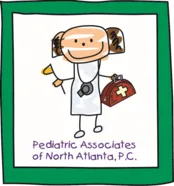RSV (BEYFORTUS/NIRSEVIMAB) VACCINE CONSENT FORM
RSV (BEYFORTUS/NIRSEVIMAB) VACCINE INFORMATION SHEET (VIS)
RSV (BEYFORTUS/NIRSEVIMAB) VACCINE PATIENT "NEED TO KNOW" SHEET
RSV (BEYFORTUS/NIRSEVIMAB) PAYMENT CONSENT FORM
RSV Vaccine Information (updated 9/13/2023)
Q & A for Parents
Respiratory Syncytial Virus (RSV)
This question-and-answer guide will help give you information on RSV, if and when your baby is sick and you think it could be RSV. If you are at all concerned about your baby’s health, please call your pediatrician.
Q: What is RSV?
A: RSV is a respiratory illness and is like getting a cold. Almost all children will get RSV at least once before age two. Unfortunately, some babies will be sicker and may have to go to the hospital to help with breathing, or to get fluids if they are not eating or drinking. Most of these babies will get better and go home in a few days. Some babies may get bronchiolitis. See below for a description of bronchiolitis.
Q: How is RSV spread?
A: RSV is spread like a common cold:
• If someone with RSV coughs or sneezes on your baby;
• Droplets from a cough or sneeze can get into the baby’s eyes, nose or mouth;
• If someone with RSV kisses your baby, RSV can spread;
• If you touch a doorknob, or counter, or faucet that has the virus on it, if you touch your baby’s face then RSV can spread.
Children can also catch RSV outside the home, such as in day care centers, schools, churches, crowded public places, etc.
Q: What are the symptoms of RSV?
A: RSV causes cold symptoms such as:
• Fever of 100.4 F or higher
• A dry or wet cough
• Congestion (stuffiness)
• Runny nose
• Sneezing
• Fussiness
• Poor feeding
Q: How long does RSV last?
A: RSV usually lasts between 7-14 days. Your baby will usually feel worse on days 3-5.
Q: When do I need to be concerned about my baby?
A: RSV can turn into bronchiolitis which is a lower respiratory infection. RSV is an upper respiratory infection. You may see cold symptoms, plus the following:
• Fast breathing
• Flaring of the nostrils and head bobbing
• Grunting during breathing
• Belly breathing
• Wheezing
If your baby has any of the following symptoms, call your pediatrician immediately:
• Symptoms of bronchiolitis
• Fewer than 1 wet diaper every 8 hours-this means your baby could be dehydrated
• Difficulty breathing or pauses in breathing
• If your baby’s tongue, lips or skin turns blue or gray
• Very little activity or alertness
Q: What else can happen if my baby has RSV?
A: Sometimes your baby can get a bacterial infection such as an ear infection. Call your pediatrician in your baby has any of these symptoms:
• Symptoms that get worse after 7 days or don’t get better
• If your baby is 3 months or younger and has a rectal temperature of 100.4 F or higher
• A fever above 104 F for a child of any age
• Ear draining or tugging at the ear
• Poor sleep or fussiness
• Chest pain
Q: What can I do to help my baby or child who has mild RSV?
A: There are no medicines like antibiotics or steroids that help with RSV. Do what you would normally do if your child had a bad cold. Other suggestions include:
• Gentle suctioning of the nose with a nasal solution to help with breathing and feeding
• A cool mist humidifier. This will help with breathing and break up the mucus.
• Fluids and frequent feedings (try to suction a baby’s nose before feeding)
• If older than 6 months of age, you can use acetaminophen or ibuprofen for children if they have a low-grade fever.
For more information from the American Academy of Pediatrics which includes helpful videos, copy the link below into your browser:
------------------------------------------------------------------------------------------
Medication Shortage Update:
As you have heard on the news and may have experienced yourself, there is a nationwide shortage on a number of medications, which include antibiotics and ADHD medications.
o If an e-prescription from one of our providers is sent to your usual pharmacy that no longer has the needed drug available, it is your responsibility to call other pharmacies to locate one that has a supply.
o Once you have found a pharmacy with the medication, please call our office right away so that the e-prescription can be redirected to that location.
o Otherwise, we are happy to provide you with a paper prescription that you can take with you as you pursue finding a pharmacy which has your child’s medication in stock.


